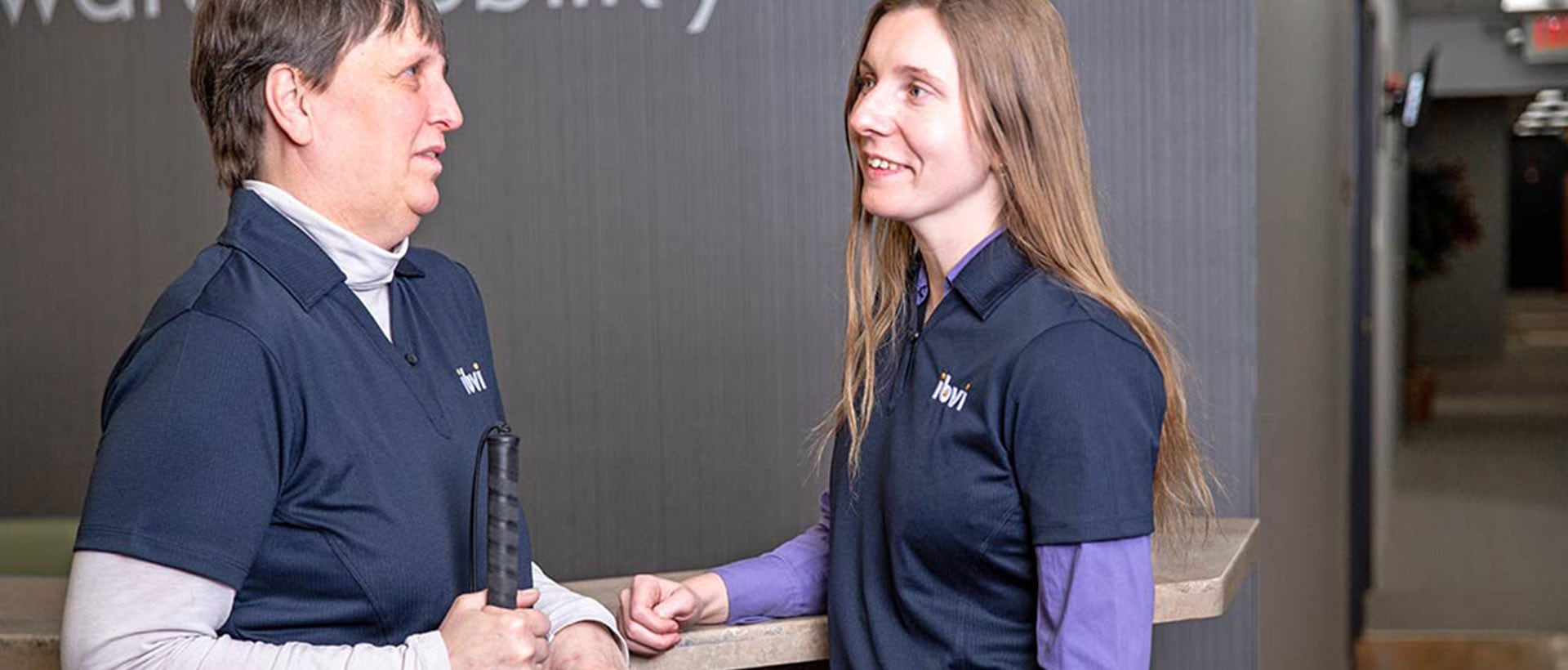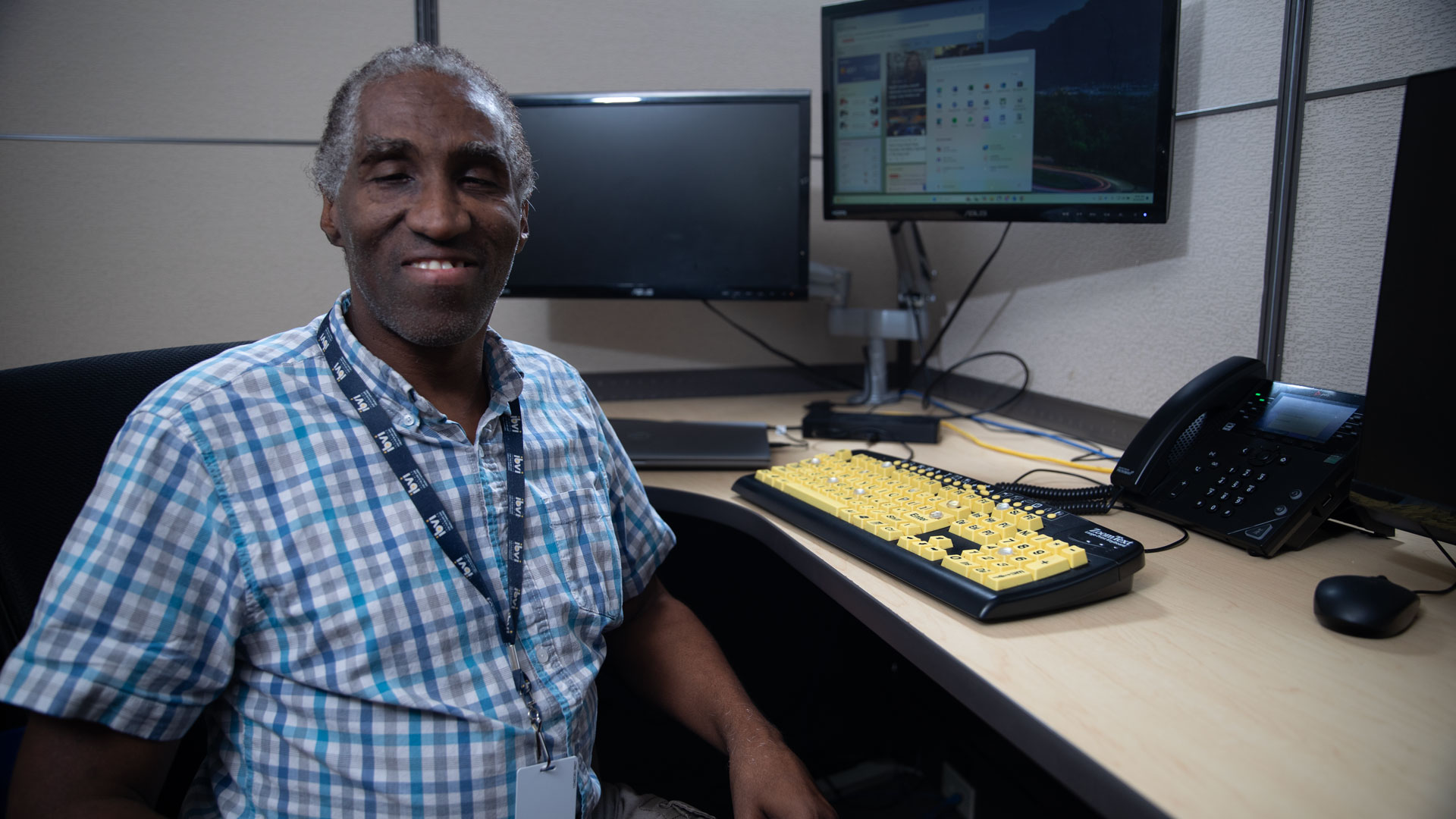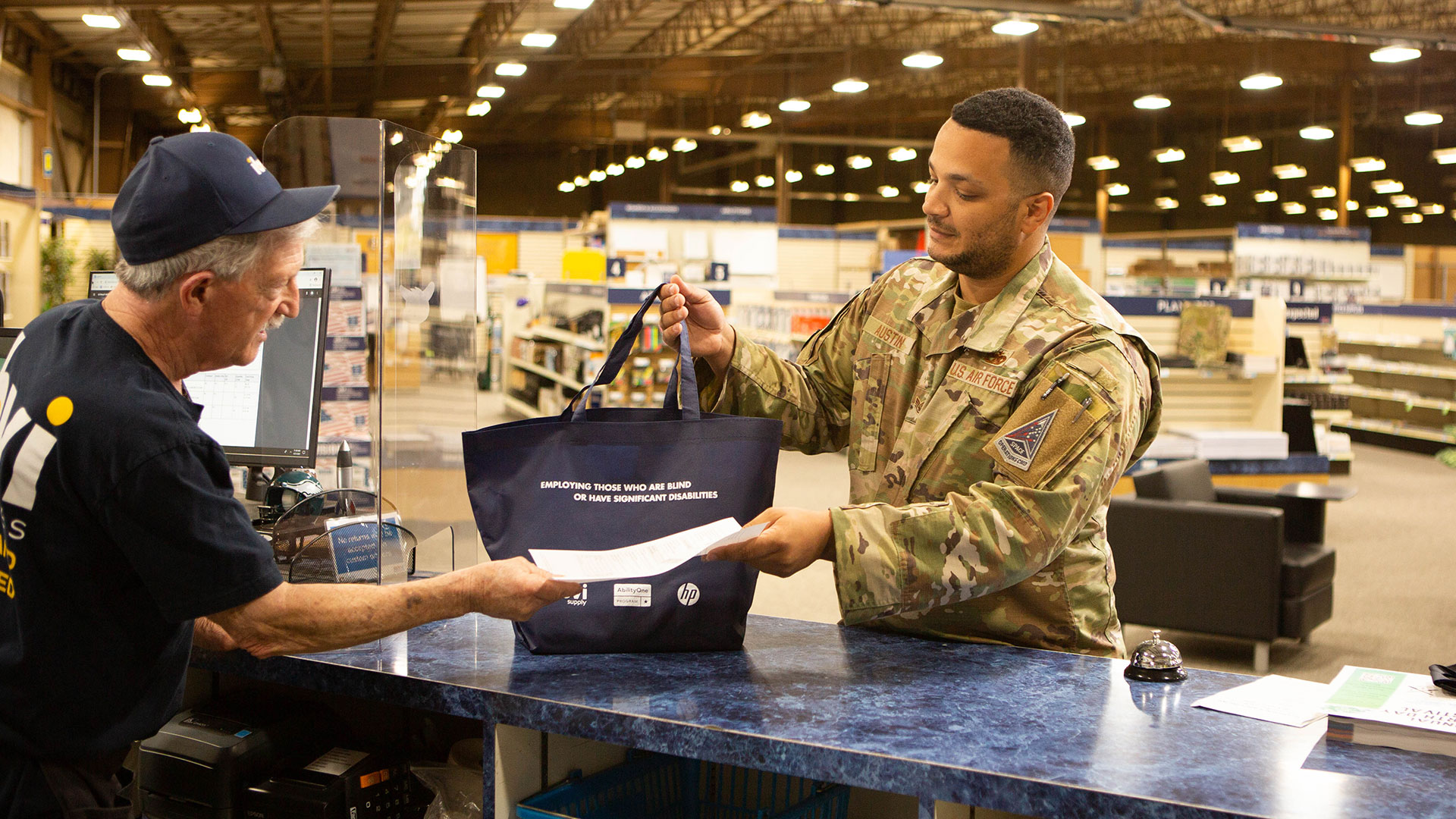Ways to be mindful of those with visual impairments in a sighted world

Often times, we who are sighted think of those who are blind or visually impaired as living completely different lives than us. And although there is the difference of sight, working with Industries for the Blind and Visually Impaired (IBVI) has helped me understand that they really are just like everyone else. An IBVI employee once said to me, “We’re not helpless or unfortunate or pitiable, but on the other side of the spectrum, we’re not saints, miracle workers, or superheroes either. We’re just like you.”
In light of that wisdom, I sought to gain a better understanding of the world from a different perspective. I learned these four things from people who are blind and visually impaired about what they want those who are sighted to consider.
- Just because we wander, doesn’t mean we’re lost. With the progression of technology and the increased independence of people with visual disabilities, you may encounter someone who is blind or visually impaired walking around without much direction. If it looks like they’re lost, there’s definitely no harm in offering your help. However, there’s a good chance that they will decline assistance. Please don’t take it personally—they might be learning how to navigate that space, using assistive technology to find out details about it, or they might really be lost but want to figure it out on their own.
- Speaking of offering assistance, learn what that entails.If a blind or visually impaired person asks for your help or takes you up on your offer to assist—please don’t touch, grab, or turn their bodies unless given permission. You also should refrain from interfering with their canes or guide dogs without consent. Just like sighted people, everyone is different. The best way to help is to ask what methods work best for the individual. Some might ask to take your arm or that you lead while their guide dogs follow. If they say that verbal instructions are best, make sure to be as descriptive as possible. For example, “You will walk about 50 feet and then make a right. Walk about 100 feet and the stairs will be ahead of you, slightly to the left.”
- Our guide dogs equal our eyeballsThose who choose to walk with guide dogs have put in countless hours of training and bonding with their animals to create a safe and successful working team. When you see anyone out with a service animal, remember that animal is working. Public interference such as petting, feeding, talking to, or even making eye contact with them can have consequences similar to distracting someone who is driving a car. And at times handlers might have to correct their dogs, so please don’t think that they are being abusive or harsh. In order for a handler and their service animal to remain a safe and effective team, there are times when correction and practice must happen.
- We are your equals. People with visual disabilities may be your colleagues, neighbors, family members, or friends. They may be your customer-service reps, the people who make your pens and pencils, or the owner of your favorite coffee shop. And just like you, they have all sorts of hobbies, likes, dislikes, favorite foods, political views, and preferred radio stations. They move through life just like sighted people do. So, if there’s one thing to remember about those who are blind or visually impaired, it’s that they’re people—just like you, me, and everyone else.


